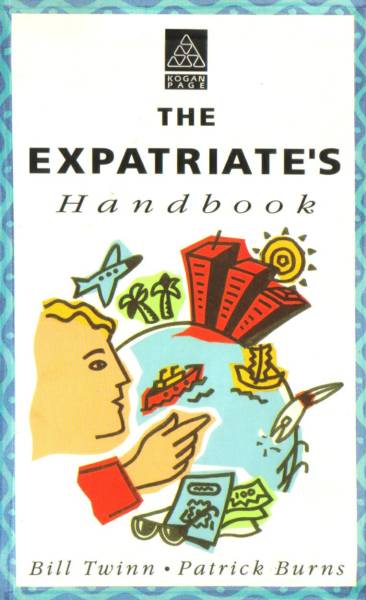Patrick Burns is co-author of The Expatriate's Handbook, a how-to textbook that provides guidance on getting the best out of overseas employment.
This invaluable publication is written for anyone contemplating expatriate work, for the first-time expatriate about to travel to his or her assignment and for experienced overseas workers wishing to obtain new perspectives on their employment.
The Expatriate's Handbook, Bill Twinn & Patrick Burns. Kogan Page.
ISBN 07494 0899 5
Human Resource Management in Asia: a selection of media articles to which Patrick Burns has contributed in recent months:
On the Asian Talent Gap
"Western leaders who succeed in Asia are adaptable to different cultures; they may not do so perfectly every time, but are observant and able to make changes (e.g. in their communications style). Another facet of - or perhaps requirement for - this ability is a sense of humility. And understanding that one does not know all, but is willing to learn".
To read full article, click on Filling the Asian Talent Gap – With Talent (part of
the Asia Pacific Thought Leadership Series published by Heidrick &
Struggles).
On Leadership Styles in Asia
"The challenge we face today is leading increasingly cross-cultural teams in an effective way. I wouldn't say this was a new universal way of leading that may be better or worse; it's simply another challenge that has to be met and requires greater flexibility."
"Leaders should retain a style which suits the given defined cultural group but can also manage mixed-culture teams that may form as a consequence of later global integration. The key to effective cross-cultural leadership is adaptability on the parts of both the leader and the employees. Both sides face a risk of short-changing themselves if they ignore culture, instead of valuing it and adjusting accordingly".
To read full article, click on Brave New World - Overcoming the east-west leadership divide by Bill Kaur, HRM Singapore, March 7, 2009
On Disciplining Employees in Asia
"Chinese workers tend to be pleasantly surprised when they come to work for a Western company. The civility of the discipline process is not something they are used to. Westerners tend to test the rules and push and boundaries and say, 'Well, that's not fair!'. In the East, Chinese people know where the line is, and they don't cross it. They go back in their boxes.
"Just as Chinese workers will rarely directly confront their boss, Japanese bosses will rarely confront their workers. If a Japanese manager says to an employee, 'We've got a problem here, and you're doing this wrong', he will not be motivating his worker.
"A Japanese employee should perhaps be disciplined more obliquely. For example, rather than tell the employee directly that he's been late too often, you should inform the individual's coworker, who would implicitly udnerstand that he should mention it to his tardy colleague".
To read full article, click on The Perfect Punishment by Vadim Lieberman. (Searching the world for the right way to punish employees), The Conference Board review, January/February 2009.
On Executive Education
"For
companies that have developed a competency framework, executive
education offers the formal learning that supports the skill and
knowledge requirements for success.
"Companies that have
a reputation for investing in executive education tend to be the ones
that high caliber, prospective employees aspire to and employees who are engaged in a well-defined and rewarding development program, which includes executive education, may
be less inclined to become footloose when external offers come in".
From: All Change for Business Schools by Joyce Jenkins, South China Morning Post, May 24, 2008.



